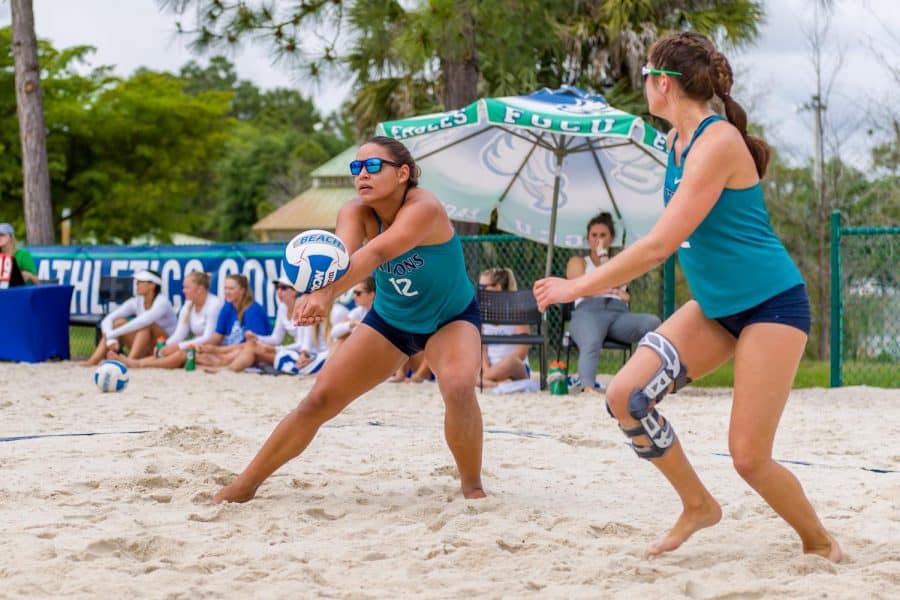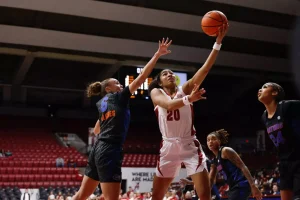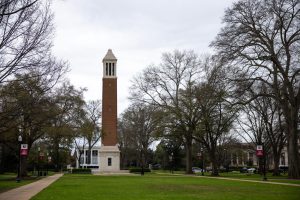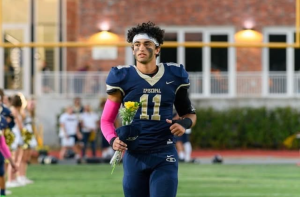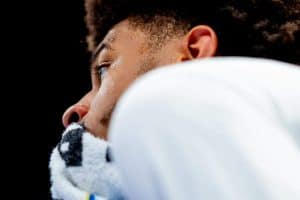A sport, a job, a priority: The different types of student-athlete experiences
June 10, 2019
College athletes in America juggle outstanding obligations. Because of the amount of energy and time they spend on their sports, they often have significantly less freedom than normal students.
“It carries over into every aspect of life,” said Noah Karr, who used to run the 800m and 4x400m relay for the University of Alabama track and field team. “There is a pressure to perform.”
Aside from the obvious academic responsibility, challenges can arise, from having to decide between a rigorous major and a sport, to maintaining eligibility, to simply finding time to eat.
“They have to be students first,” said Stephanie Godfrey, a UA academic advisor with the athletic department. She also said the NCAA has stricter classroom requirements of football players than ones in other sports.
The immense commitment offers less of a return to some. Less affluent schools cannot always afford to offer perks or scholarships, especially at the Division II and Division III levels. This notion of student-athletes having challenging daily lives is common knowledge. Even so, its athletes continue to not only devote and apply themselves on a daily basis but push to compete at their highest levels.
Karr’s in-season routine included waking up at 5:30 a.m. for weights and runs until 8 a.m., classes between 9 a.m. and 2 p.m. and another practice from 3-5:30 p.m. Before and after practice, he would go to the training room to minimize the physical toll his body took throughout the day. Saturdays meant waking up early, too, for 10-mile runs.
It was not all hardship, though, he said. Some benefits the school offered him included gear and “generous” stipends for food on trips, which often left him with extra spending money for when he returned.
Back at home, Alabama Athletics is home to a central, comprehensive resource building. Attached to the athletic dorm, it includes a career center, tutoring, advisors and printing, all free and separate from what normal students get. Now that the NCAA allows schools to feed athletes with fewer limitations, Crimson Tide athletes can also go to a new exclusive dining hall for meals.
Aside from the tangible, athletes interviewed also brought up benefits for after they graduate. They said the time management skills they have developed have helped to prepare them for the professional world. The difference is Chloe Yeager, a senior pitcher for Lipscomb University’s softball team, and Parker both play for Division I schools. Overall, these programs in the national spotlight have more opportunities than many Division II and III schools.
Alabama, especially, can maximize NCAA-authorized perks and opportunities, given its colossal monopoly with high-ranking teams. With the Tide’s success comes more money for the school, which is reflected through its up-to-date facilities, robust dining options and higher-than-life travel accommodations. Despite this disparity, though, Yeager said her arrangement suits her. She had an offer to go to a different SEC school, where she might have had more amenities, but opted for the elite academics and intimate feeling that the smaller Lipscomb offered.
“Physically and mentally, we can do a lot more than we think that we can,” she said about her demanding routine. “I think it’s just based off of pure willpower.”
Majoring in biology and chemistry and aspiring to work in medicine, Yeager has to work harder than most teammates on her degree. She said while she has managed, partially thanks to the school’s support, she could see how others may not be able to pursue both a sport and a more time-consuming area of study.
Universities demand a lot of their athletes, and they profit off of them, to varying degrees. In return, they offer an education, often paid for by scholarships. But given their time commitment to their sports, some athletes may not have the opportunity to study whatever they choose. Fernanda Reis, a junior beach volleyball player at Eckerd College in Florida, said while her sport did not affect her choice, she has known teammates to change majors to reduce schoolwork.
At Eckerd, a Division II school, Reis said athletes receive no benefits, other than those on scholarship, and may have to forego internship and work-study opportunities.
“Basically, we’re normal students with a sport,” she said.
Problems that Reis may experience mainly include time constraints and access to nutritious food. She said practice usually ends after her campus cafeteria closes, and depending on her class schedule, she may not have the chance to go there for lunch, either.
“I think that’s something that most people complain here about, not having a good source of nutrition,” she said.
On top of this, Reis said the school could do more to show appreciation to its athletes. She said she regrets that it devotes 3% of its spending to athletics, while Division II neighbor University of Tampa spends 40%. Despite this, Reis, who came to Eckerd from Brazil after her sister did the same in 2014, appreciates her spot on the team.
“That definitely gave me a chance to keep doing what I love, keep playing volleyball, while getting my education,” she said, and otherwise, “I wouldn’t be able to afford a school like this.”
Rakim Ali plays left and right back for the University of West Alabama, another Division II school. He echoed some of Reis’s sentiments, including the disadvantages of a smaller athletic department.
“It’s almost like you have less rights than a regular student,” he said. He cited having to refuse opportunities that would undermine his amateur standing and having no time for a paying job as particular challenges. He did call the recent NCAA amendment allowing schools to feed athletes “a big help,” though.
Ali said his situation works well for him, thanks to multiple scholarships. He expressed concerns about others’, though, namely those on whom a school might profit more heavily without offering an “equal return.”
He suggested for more schools to pay for more players’ living costs.
Godfrey makes herself available to students for help with administrative affairs, but also as a mother-away-from-home figure. From the eligibility conflicts to helping advisees build schedules around majors they want, she strives to empower and protect them.
“Whether they want to be, or intend to be, they’re gonna be [leaders], and they’re gonna be recognized,” she said.



